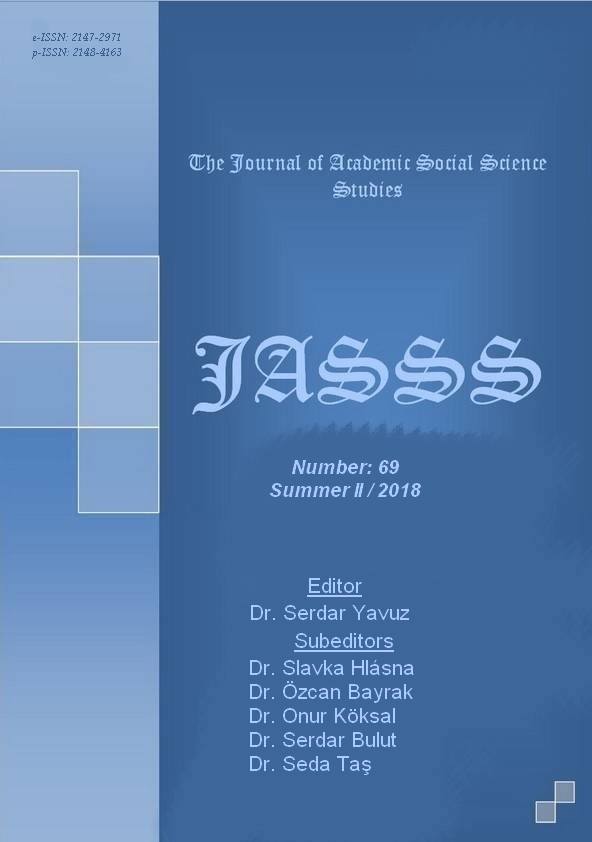ZERKEŞÎ’NİN (Ö. 794/1392) HANEFİ VE MALİKİ ALİMLERE HABER-İ VÂHİD KONUSUNDA İTİRAZ ETTİĞİ BAZI MESELELER
Author :
Abstract
Hadis ve sünnet, mezheplerin hüküm çıkarmada dayandığı temel kaynaklardan ikincisidir. Dolayısıyla bir mezhebin hadis ve sünnet anlayışı, o mezhebin fıkhî meselelerdeki hükümlerinin yönünü belirlemektedir. Hanefî mezhebinin hadis ve sünnet anlayışı, daha çok mezhep imamlarının eserlerinden hareketle ortaya konulduğu söylenebilir. Diğer mezheplerin aksine Hanefîler haber-i vâhidin kabulü için onu kitab'a, mütevâtir ve meşhur habere arzederken; kitab'a, mütevâtir ve meşhur habere muhalefetten dolayı onların birçok haber-i vâhidle amel etmeyi reddettikleri görülmektedir. Hanefîlere göre râvinin rivayet ettiği hadise muhalif davranması durumunda ya o hadisin aslı yoktur o hadis veya neshedilmiştir. Keza onlara göre umûmu'l-belvâ olan konulardaki haber-i vâhidler de yaygınlık kazanmadığı gerekçesiyle reddedilmelidir. Yine haber-i vâhid ile Kur’an’a yapılan ziyâde de caiz değildir. Aynı şekilde İmam Malik’in metodolojisinde Medinelilerin ameli özel bir yere sahiptir. Bu yaklaşım, İmam Malik’ten bir asır önce yayılmış olmasına rağmen, O, bu metodu fetvalarında sık kullandığı için metot, ona nispet edilmiştir. İmam Malik’in bu metodu savunmasının arka planındaki temel saik dinî hükümlerin büyük bölümünün Medine’de inmiş ve uygulanmış olması, amel-i ehl-i Medine’nin, Hz. Peygamber’in sünnetini ve sahabenin uygulamalarını yansıtmasıdır. İşte bu bağlamda İmam Malik’in âhad haberle amel etme konusunda ortaya koyduğu şartlardan birisi haberin Medinelilerin ameline aykırı olmamasıdır. Eğer aykırılık arz ediyorsa İmam Malik bu haberle amel etmemiştir. İmam Malik Medinelilerin amelini âhad haberden üstün tutmuş, onu topluluğun topluluktan yaptığı rivayet olarak değerlendirmiştir. Ancak Şafiî alimlerden biri olan Zerkeşî “el-Bahrü’l-muhît fî usûli’l-fıkh” adlı eserinde gerek Hanefilerin gerekse de Malikilerin Haber-i vâhidin kabul edilmesi için ileri sürdüğü şartları yorumlamak suretiyle tenkit etmiş, kabul etmemiştir. Bu çalışmada Zerkeşî’nin ilgili konulara yaklaşımı irdelenecektir.
Keywords
Abstract
Hadith and Sunnah are the main sources of sects based on judgment. Therefore, a sectarian understanding of hadith and circumcision determines the direction of the provisions of that sect's jurisprudence.The understanding of hadith and Sunnah of the Hanafi sect has been revealed mainly from the works of sect imams.Unlike other denominations, the Hanafîs offer him a well-known and well-known story for his acceptance of the news; it seems that they refused to act with many news items because of the mutual and famous public opposition to the book.According to the Hanafi, when the incident reported by the narrator is in opposition, the hadith is either absent or rejected.According to them, the news-witnesses who are the victors of the umum al-belva are not allowed to be rejected by the reason that they are not prevalent, nor are they allowed to be made to the Qur'an with news. Likewise, in the methodology of the Imam Malik, the function of the Medinas has a special place. This approach was extended a century ago by Imam Malik, but since he used this method a lot in his fatwas, the method was assigned to him. The fact that most of the religious provisions of Imam Malik's defense of this method have been brought down and practiced in Medina is a result of the fact that the Prophet Muhammad. Because it reflects the Sunnah of the Prophet and his practices.One of the conditions that Imam Malik reveals about working with the news is that the Medinas are not against the amateur. Imam Malik did not act with this news if it is contradictory. Imam Malik considered the practice of the Medinas as superior to the allegory. However, in his book " al-Bahr al-muhît fî usûli'l-fıqh", Zerkeshi criticized and rejected the Hanafis, as well as the conditions that the Maliks advocated for the acceptance of the Prophet. In this paper, Zerkeshi’s approach to the relevant issues will be examined from Shafi'i scholars.
